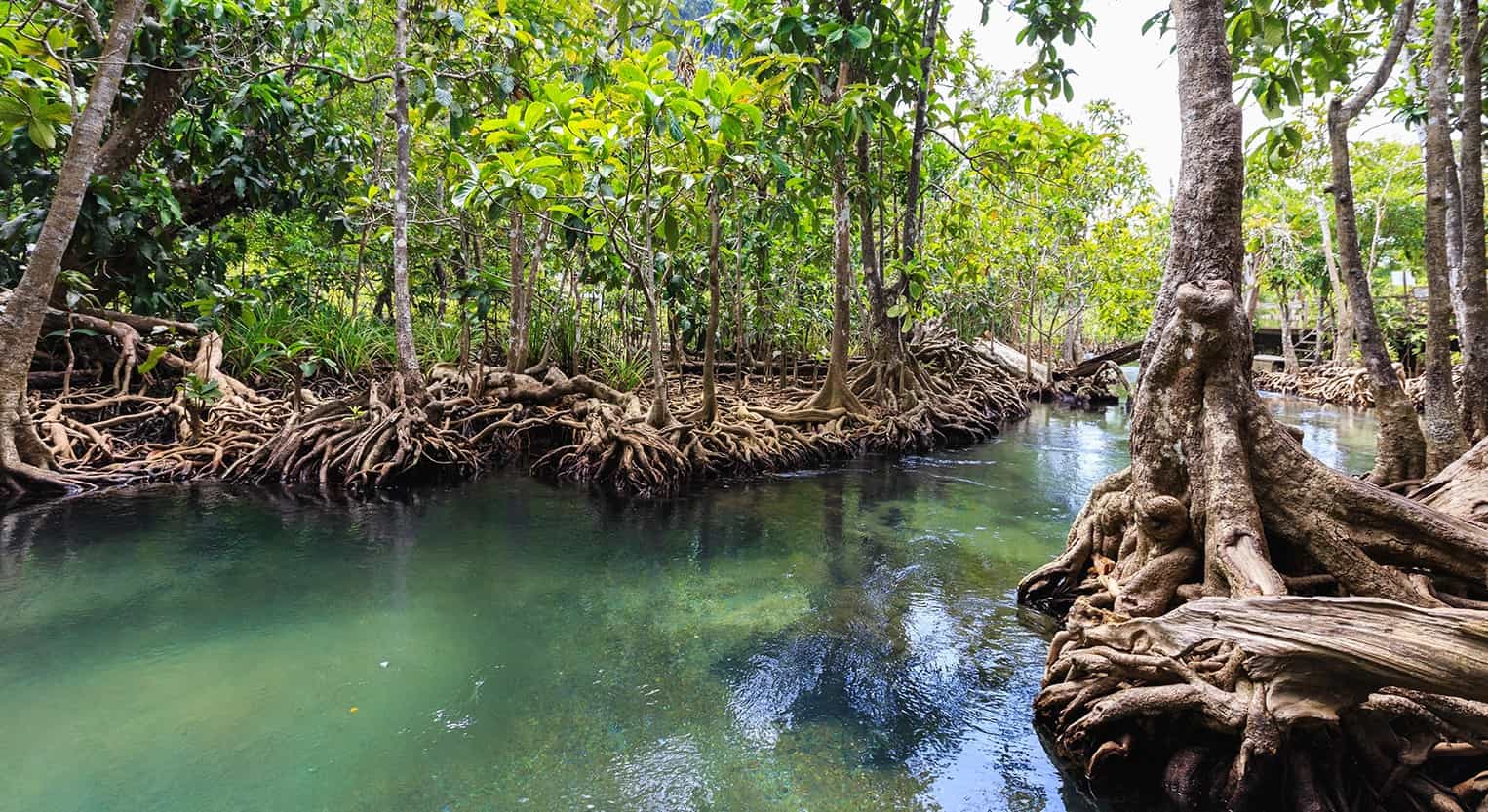
Ecosystems are fascinating and complex systems that play a crucial role in sustaining life on our planet. From the depths of the oceans to the highest mountain peaks, ecosystems exist in various forms, supporting a wide array of plant and animal species. While many of us may have a general understanding of what an ecosystem is, there are numerous surprising facts that highlight the intricacies and wonders of these natural systems.
In this article, we will delve into 19 surprising facts about ecosystems that will expand your knowledge and leave you amazed at the incredible diversity and interconnection of life on Earth. From mind-boggling adaptations to astonishing symbiotic relationships, get ready to explore the hidden wonders of the natural world and gain a deeper appreciation for the delicate balance that exists within ecosystems.
Key Takeaways:
- Ecosystems are diverse, interconnected, and vital for life on Earth. They provide essential services, support livelihoods, and inspire scientific discoveries. Protecting them is crucial for our well-being and the planet’s future.
- Ecosystems are dynamic, resilient, and worth protecting. They promote natural balance, cultural significance, and economic value. Understanding their importance can inspire us to take action in preserving these vital habitats.
Ecosystems are incredibly diverse
Ecosystems are teeming with a vast array of life forms, ranging from microscopic bacteria to majestic forests and intricate coral reefs. The sheer diversity of species within an ecosystem is mind-boggling.
Ecosystems provide vital services
Ecosystems play a crucial role in sustaining life on Earth. They provide essential services such as clean air, fresh water, and fertile soil, making them indispensable for human well-being.
Ecosystems are interconnected
Ecosystems are interconnected webs of life, where each component relies on others for survival. From plants producing oxygen to support animal life, to decomposers breaking down organic matter, every organism has its role to play.
Ecosystems regulate climate
Ecosystems, particularly forests and oceans, help regulate global climate patterns. They absorb carbon dioxide and release oxygen, mitigating the impact of greenhouse gases and stabilizing temperatures.
Ecosystems are under threat
Human activities, such as deforestation, pollution, and habitat destruction, pose significant threats to ecosystems worldwide. Protecting and preserving these habitats is essential for maintaining biodiversity and ecological balance.
Ecosystems can recover
Despite the damage they endure, ecosystems have a remarkable ability to recover and regenerate if given the chance. Through restoration efforts and conservation practices, degraded ecosystems can bounce back and regain their vitality.
Ecosystems support livelihoods
Many communities around the world rely on ecosystems for their livelihoods, whether through fishing, agriculture, or tourism. Protecting these ecosystems is not only crucial for the environment but also for the well-being of local communities.
Ecosystems inspire scientific discoveries
The diverse and complex nature of ecosystems has inspired countless scientific discoveries. Researchers continue to uncover new species, study intricate ecological interactions, and develop innovative solutions for environmental challenges.
Ecosystems have economic value
Ecosystems provide economic benefits through various industries such as agriculture, forestry, and pharmaceuticals. Recognizing their economic importance can lead to better conservation practices and sustainable development.
Ecosystems are home to unique species
Many ecosystems harbor species that exist nowhere else on Earth. These endemic species are often highly specialized and adapted to their specific habitat, making their conservation critically important.
Ecosystems promote natural balance
Ecosystems have a natural balance that helps regulate populations of different species. Predators keep herbivore populations in check, preventing overgrazing, while pests are controlled by natural predators, reducing the need for chemical pesticides.
Ecosystems enhance resilience
Diverse ecosystems possess higher resilience to disturbances such as natural disasters or climate change. The variety of species and interactions within these ecosystems allows for adaptation and recovery.
Ecosystems inspire artistic expression
Ecosystems have been a source of inspiration for artists throughout history. Painters, writers, musicians, and filmmakers often draw upon the beauty and complexity of nature when creating their works.
Ecosystems provide recreational opportunities
Ecosystems offer a wide range of recreational activities such as hiking, wildlife observation, and camping. Engaging in outdoor activities allows people to connect with nature and appreciate its beauty.
Ecosystems can act as natural filters
Wetlands and forests act as natural filters, removing pollutants from water and air. These ecosystem services are crucial for maintaining clean and healthy environments.
Ecosystems are constantly evolving
Ecosystems are dynamic and ever-changing. Ecological succession, the process of one ecosystem gradually transitioning into another, showcases the adaptive nature of these interconnected systems.
Ecosystems are microcosms of life
Ecosystems encapsulate the intricate complexities of life itself. They mirror the interconnectedness, diversity, and resilience that is found on a larger scale across the entire planet.
Ecosystems have cultural significance
Ecosystems hold cultural significance for many indigenous communities. They embody traditional knowledge, sacred sites, and cultural practices that have been passed down through generations.
Ecosystems are worth protecting
The value of ecosystems cannot be overstated. Protecting and conserving these fragile environments is crucial for the well-being of all living creatures, including humans, and for maintaining a sustainable future for generations to come.
These 19 Surprising Facts About Ecosystem highlight the importance of preserving these complex and diverse habitats. From their role in sustaining life on Earth to their economic and cultural significance, ecosystems are undeniably vital. Understanding and appreciating these facts can inspire us to take action in protecting and conserving our precious natural resources.
Conclusion
In conclusion, ecosystems are incredibly diverse and fascinating systems that play a crucial role in supporting life on Earth. From the intricate web of interactions between different organisms to the vital services they provide, such as clean air and water, ecosystems are truly remarkable.Throughout this article, we’ve uncovered 19 surprising facts about ecosystems. We’ve learned about the incredible biodiversity found within them, the important role they play in mitigating climate change, and the delicate balance that must be maintained for them to thrive.Understanding and appreciating the complexity of ecosystems is crucial for not only the preservation of our natural world but also for our own well-being. By protecting and conserving these invaluable systems, we can ensure a sustainable future for generations to come.Remember, each action we take, no matter how small, can make a difference in preserving and restoring ecosystems. Let’s continue to learn, explore, and marvel at the wonders of the natural world around us.
FAQs
Q: What is an ecosystem?
A: An ecosystem is a community of living organisms, such as plants, animals, and microorganisms, interacting with each other and their physical environment.
Q: Why are ecosystems important?
A: Ecosystems provide essential services such as purifying air and water, regulating climate, and supporting biodiversity. They are vital for maintaining the balance of our planet.
Q: How many types of ecosystems are there?
A: There are several types of ecosystems, including terrestrial (land-based), aquatic (water-based), and marine (ocean-based) ecosystems.
Q: How do ecosystems contribute to climate change mitigation?
A: Ecosystems, such as forests and wetlands, absorb and store carbon dioxide, a greenhouse gas that contributes to climate change. They play a crucial role in reducing its concentration in the atmosphere.
Q: How can I help conserve ecosystems?
A: You can contribute to ecosystem conservation by practicing sustainable behaviors, supporting conservation organizations, reducing waste and pollution, and advocating for policies that protect natural habitats.
Remember, the preservation and conservation of ecosystems are a collective responsibility. By being informed and taking action, we can ensure the long-term health and vitality of these essential systems.
Ecosystems never cease to amaze, and there's always more to explore! Delve into the wonders of terrestrial ecosystems, marvel at the astonishing diversity within them, and prepare to be astounded by even more surprising facts about nature's intricate web of life. Each ecosystem holds a treasure trove of secrets waiting to be discovered, so let curiosity be your guide as you embark on this captivating journey through the natural world.
Was this page helpful?
Our commitment to delivering trustworthy and engaging content is at the heart of what we do. Each fact on our site is contributed by real users like you, bringing a wealth of diverse insights and information. To ensure the highest standards of accuracy and reliability, our dedicated editors meticulously review each submission. This process guarantees that the facts we share are not only fascinating but also credible. Trust in our commitment to quality and authenticity as you explore and learn with us.


